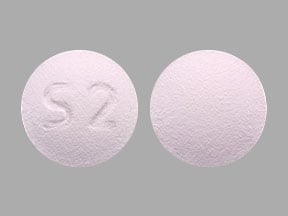
Solifenacin Coupons & Savings Card – Discount Prices from $27.95
Generic for: Vesicare, Vesicare ls
My prescription
Edit
10MG, Solifenacin (90 Tablets)
Select pharmacy

CVS
$33.05
COUPON PRICE
Walmart
$27.95
COUPON PRICE
Albertsons
$30.86
COUPON PRICE
Walgreens
$32.58
COUPON PRICESolifenacin savings card
Show this card to your pharmacist
Walmart
$27.95
BIN
ID
PCN
GRP
019876
LH6FA5F701
CHIPPO
LHX
Powered by
More prescriptions for overactive bladder
More prescriptions for overactive bladder
Price history for Vesicare (brand) & Solifenacin (generic)
90 Tablets, 10MG
Average retail price for Vesicare
Average retail price for Solifenacin
Average SaveHealth price for Solifenacin
Our price history data is based on aggregated prescription data collected from participating pharmacies in America. Our prescription data updates daily to reflect the latest price changes. If you notice a missing data point, it means there wasn't sufficient data available to generate a monetary value for that date.
We analyzed Solifenacin prices for (10MG, 90 Tablets) over the last 12 months. The average retail price was $39.71, while the average price using the SaveHealth discount card was $37.72. That's a savings of approximately 5.01% when using our Solifenacin coupon.
Compared to the generic version, Vesicare had an average price of $1398.89 over the same time period. With the SaveHealth savings card, Solifenacin is 97.30% cheaper on average than Vesicare.
*Retail prices are based on pharmacy claims data, and may not be accurate when we don't have enough claims.
Solifenacin dosage forms
Dosage Quantity Price from Per unit 5MG 30 Tablets $9.04 $0.30 5MG 60 Tablets $15.57 $0.26 5MG 90 Tablets $28.61 $0.32 10MG 90 Tablets $27.95 $0.31 10MG 30 Tablets $8.82 $0.29 10MG 60 Tablets $15.14 $0.25
| Dosage | Quantity | Price from | Per unit |
|---|---|---|---|
| 5MG | 30 Tablets | $9.04 | $0.30 |
| 5MG | 60 Tablets | $15.57 | $0.26 |
| 5MG | 90 Tablets | $28.61 | $0.32 |
| 10MG | 90 Tablets | $27.95 | $0.31 |
| 10MG | 30 Tablets | $8.82 | $0.29 |
| 10MG | 60 Tablets | $15.14 | $0.25 |
